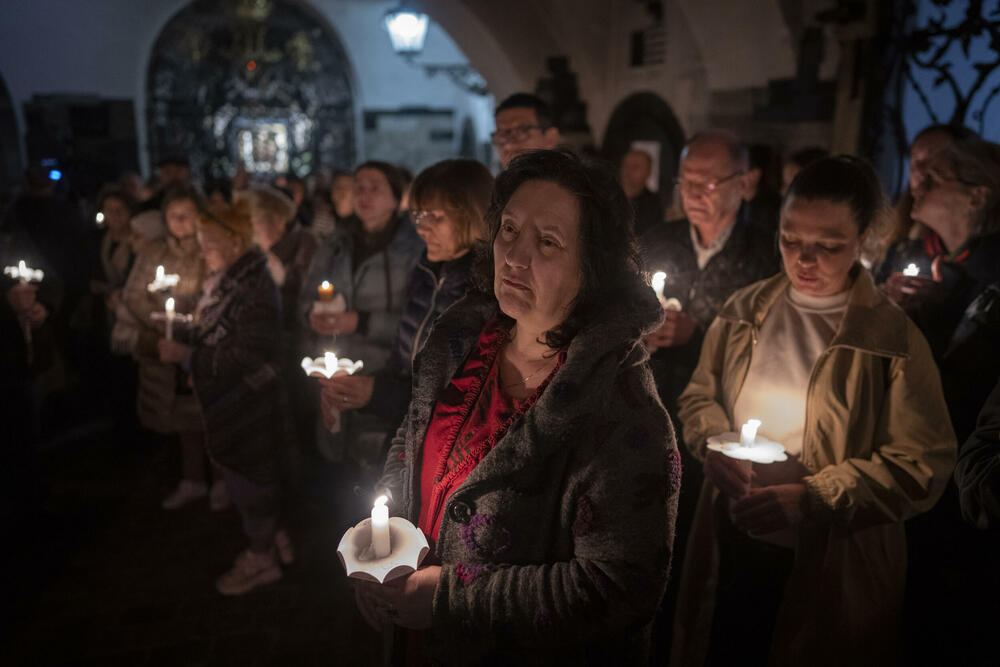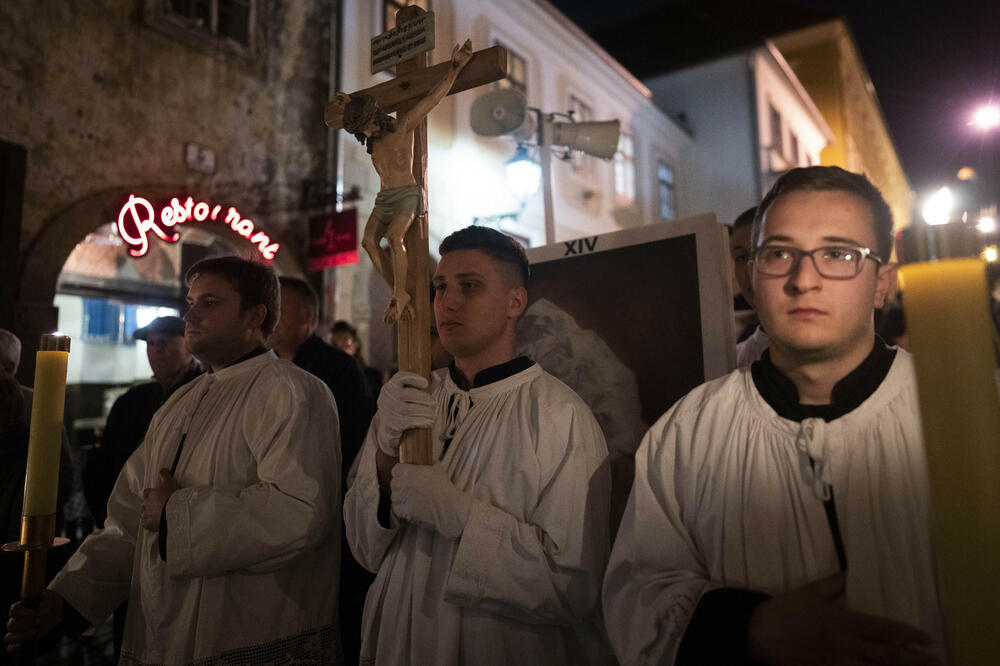Religious and conservative groups in Croatia are organizing vigils outside clinics, marches involving thousands of people and rallies where men kneel and pray in public squares to increase pressure to ban abortion in the Catholic country.
The fierce debate has fueled divisions in this member of the European Union, where abortion is legal, but access to the procedure is often denied, as a result of which many women go to neighboring Slovenia to terminate their pregnancies, reports the Associated Press agency.
This movement is in stark contrast to Croatia's recent past, when it was part of the former Yugoslavia where the right to abortion was protected by the constitution 50 years ago.

"It's unbelievable to me that we're even talking about this in 2024," Ana Sunić, a mother of two from Zagreb, told the American agency. "The basic right of every person is to decide what to do with their body".
This topic became topical again earlier this month when France constitutionally protected the right to abortion, and activists in the Balkans recalled that the former Yugoslavia did so back in 1974.
Tanja Ignjatović from the Autonomous Women's Center in Belgrade pointed out that women in the former Yugoslavia believed that the right to an abortion "belongs to them and cannot be questioned." However, she added, "we see that regression is very possible".
After the breakup of the former Yugoslavia, the new states kept the old laws. However, the post-communist revival of nationalist, religious and conservative attitudes threatens that legacy, AP points out.
Yugoslavia's abortion law remained intact after Croatia gained independence in 1991, but in 2003 doctors were given the right to refuse to terminate a pregnancy. As a result, many women have been traveling to neighboring Slovenia for an abortion for years.
A men's organization called "Be Manly" organizes prayers in city squares, where they preach a return to male dominance and traditional gender roles along with an anti-abortion campaign.
"The gap between the law and practice is huge," said feminist activist Sanja Sanavka. "Due to the enormous influence of conservative groups and the Catholic Church, abortion is de facto impossible in many places, or severely restricted."
The current campaign for Life in Croatia includes prayers, vigils and lectures "to save the unborn and stop abortion in our country."
A men's organization called "Be Manly" organizes prayers in city squares, where they preach a return to male dominance and traditional gender roles along with an anti-abortion campaign.
In 2022, the case of a woman who was denied an abortion, even though her baby had serious health problems, caused public outrage and protests by members of the liberal Croatian community.
Mirela Čavajda was 20 weeks pregnant when doctors informed her that her fetus had a brain tumor and had no chance of a normal life. Although abortion is allowed in Croatia, Čavajda had to undergo the procedure in Slovenia.
In the same year, as many as 207 Croatian women had their pregnancies terminated in an abortion clinic on the border with Slovenia, according to a study by Croatian obstetrician Jasenka Grujić.
The percentage of doctors who refuse to perform an abortion due to conscientious objection is 100 percent in certain Croatian hospitals, the study showed. Among them are not only gynecologists, but also anesthesiologists and other doctors who are needed for that procedure, Grujić said.
"The Croatian medical community is deeply divided", stated Grujić in the analysis she submitted to the AP agency. "I hope that this trend of unavailability will change. It is very dangerous for the health and lives of women".
Yugoslav doctors first considered legalizing abortion in 1935, and it became a reality in the 1950s. Forced by women's organizations created after the Second World War, the right to abortion was later included in the Yugoslav constitution.
Stating that "it is the right of a human being to freely decide on the birth of children", the Yugoslav constitution did not explicitly guarantee abortion, as is the case now in France. However, it provided Yugoslav women with easy access to termination of pregnancy at clinics throughout the country.
"France's decision reminded us that we had that right in the 1974 constitution, which means exactly 50 years before France," said Ignjatović.
Serbia and Slovenia have included women's freedom to choose whether they want offspring in their constitutions. Women in Bosnia and Herzegovina can legally have an abortion during the first ten weeks of pregnancy, although there are economic restrictions in that country, AP points out.
Bonus video:




